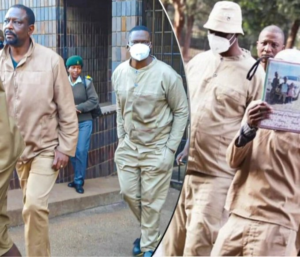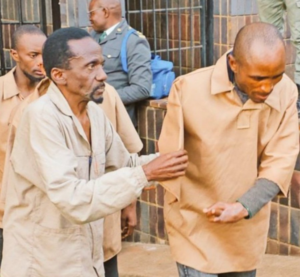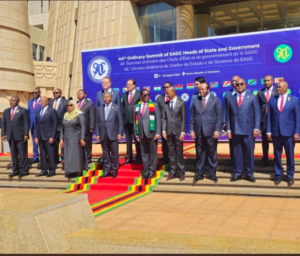THE JUDICIAL IMPRISONMENT OF JOB SIKHALA: AN INDICTMENT OF ZANU PF’S REIGN OF OPPRESSION
As Job Sikhala, the incumbent vice president of the reinvigorated and resilient opposition party, stands stoically in his cell, we are offered a chilling insight into the depths of paranoia and corruption within the ruling Zanu PF party. Sikhala, an outspoken critic of the regime, is currently incarcerated on charges of inciting violence, marking yet another point of contention in an increasingly divisive political climate.
Sikhala’s failed attempt to contest the continuation of his detention, which he deems unjust and unwarranted, has been met with widespread disregard by the nation’s judiciary. This is not the first time that allegations of the judicial system’s complicity with the government have surfaced. Notably, there have been instances where evidence implicating senior Zanu PF officials in embezzlement schemes, such as the Draxgate scandal, were glaringly overlooked.
The court’s refusal to address these allegations and their focus on Sikhala’s case highlight the government’s endemic fear of a potential revolt. For decades, Zanu PF has used fear and oppression as a means of controlling the population, manipulating the law to their advantage, and ruthlessly silencing dissent. Sikhala’s case serves as a microcosm of this deeply entrenched fear, illustrating the lengths the government is willing to go to suppress its critics.
Though it is not explicitly stated, the charges brought against Sikhala hint at his alleged instigation of violent protests against the Zanu PF government. To an uninformed observer, these charges may seem unfounded. However, when viewed against the backdrop of a nation grappling with hyperinflation, record unemployment, escalating crime rates, business closures, foreign exchange shortages, and soaring inflation, it becomes clear that the government is on shaky ground.
In essence, Zanu PF appears to be preparing for the inevitable public backlash to their mismanagement of the economy and their abject disregard for citizens’ welfare. This anticipatory fear has led to the increased scrutiny of Sikhala and other opposition leaders who represent the potential for a violent shift in the status quo.
One could argue that the primary source of Zanu PF’s fear is the prospect of retribution from a populace that has been pushed to the brink. Their refusal to address the nation’s welfare and the spiralling economic crisis has left the people feeling disregarded and oppressed. The memory of the previous regime’s political detentions looms large, reinforcing the fear that history may soon repeat itself.
The potential loss of lives and livelihoods, particularly those of the elite who have profited from the government’s plundering of the nation’s wealth, fuels the cycle of fear and oppression. Thus, Sikhala’s incarceration serves as a grim reminder of the imminent threat that hangs over the Zanu PF regime. As this beleaguered nation edges closer to an uncertain future, the fate of Job Sikhala represents a poignant symbol of the struggle for justice and a return to the rule of law.




